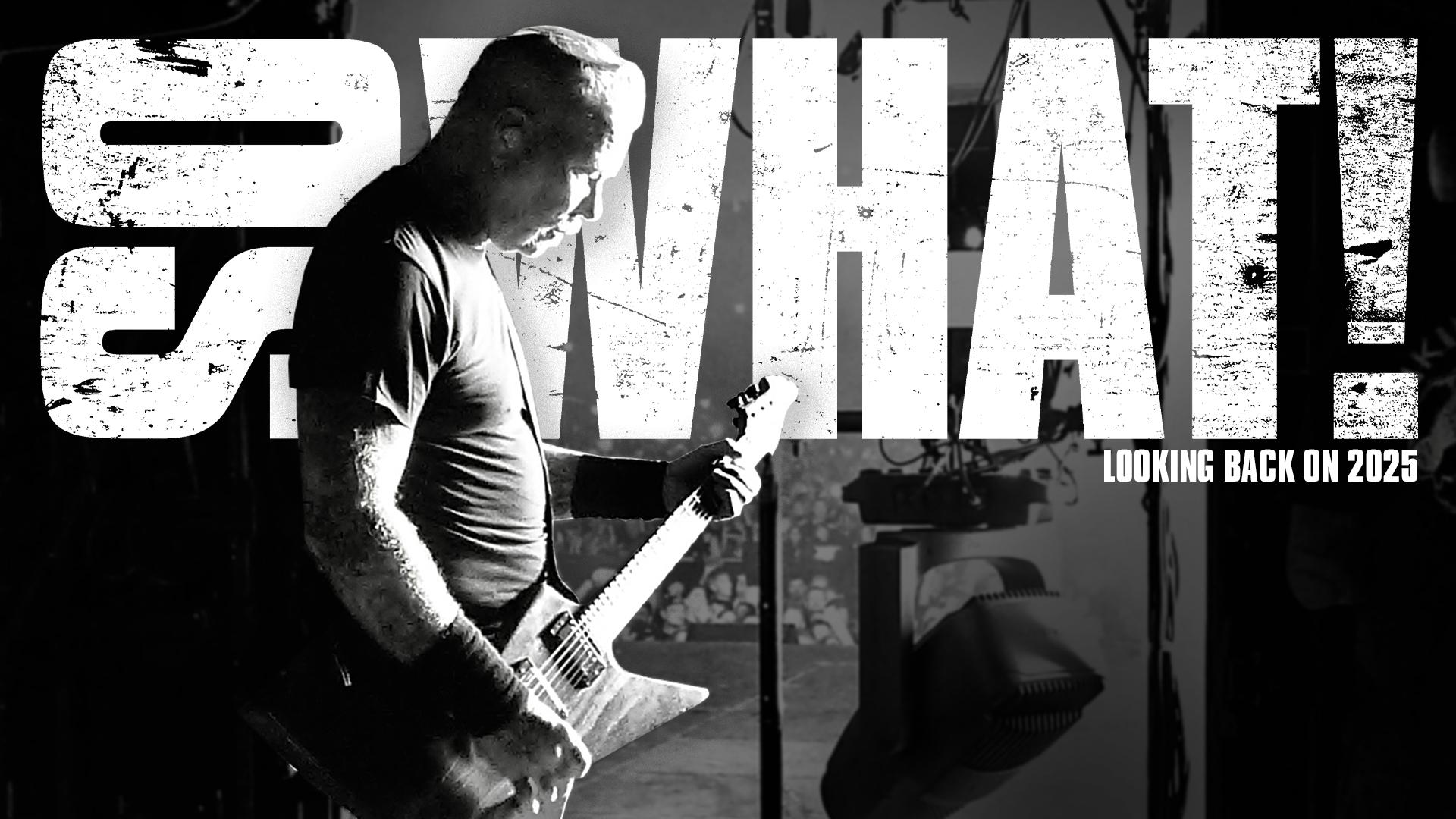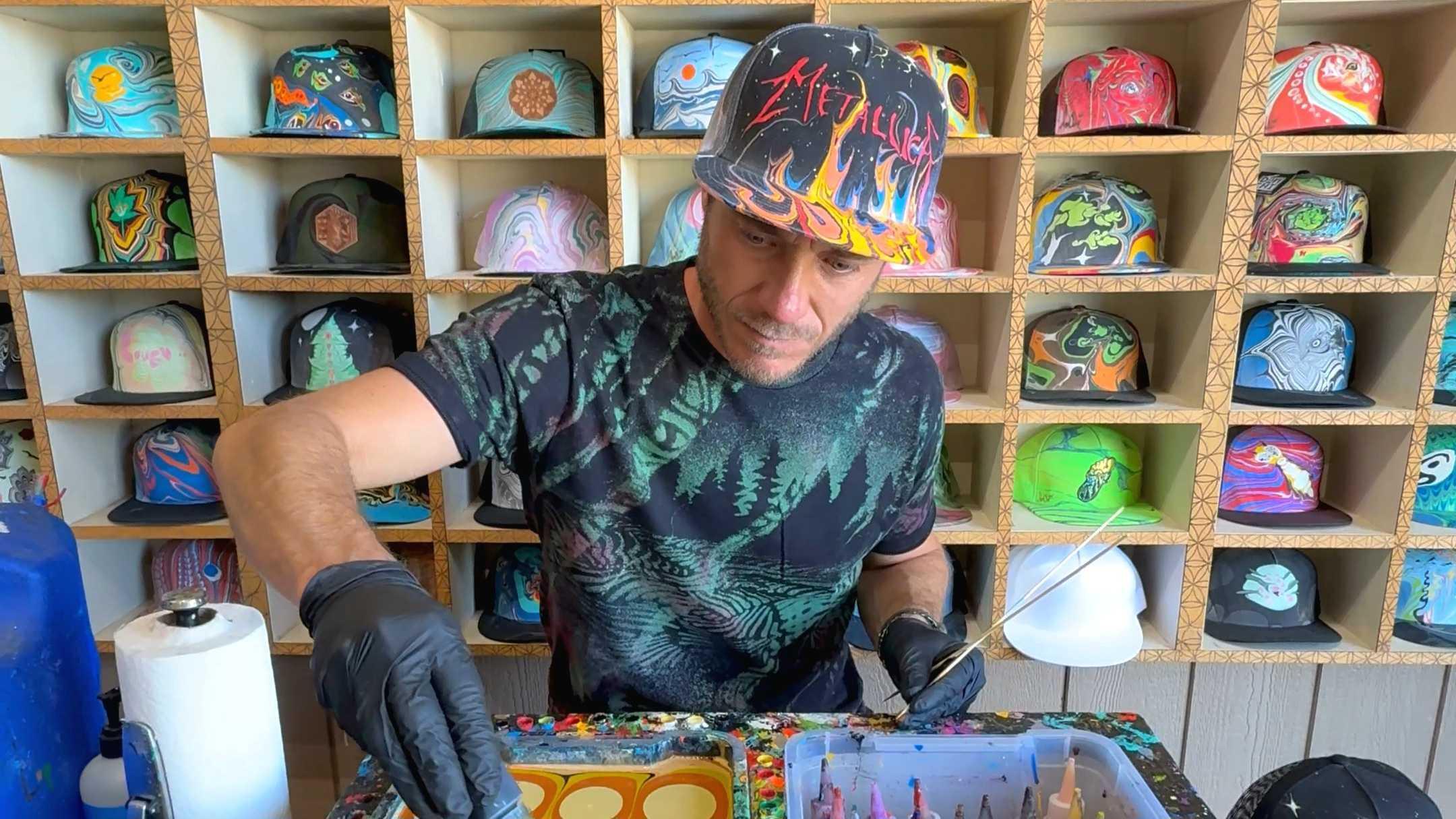
Looking Back on 2025
Some words and photos to look back on the year that was from So What! Editor Steffan Chirazi.
Nov 11, 2022
I am not sure if you remember the 7.0 magnitude earthquake in Haiti on January 12, 2010, but trust me, as devastating as it was to hear about, the horrors it unleashed for the citizens and residents of Haiti remain unimaginable and utterly unfathomable to all, save those who experienced or witnessed them first-hand. Two Marines, Jake Wood and William McNulty, decided to act on what they saw as simply not enough urgent action to help people in obvious and desperate need. They gathered a small group of veterans, first responders, and medical staff, rounded up supplies, and took off on a mission which would spawn Team Rubicon, a veteran-led humanitarian organization that serves global communities before, during, and after disasters and crises.
Anthony Brown, who lives in Bethelridge, Kentucky, is one of the noble ‘Greyshirts’ [volunteers] who give their sweat, blood, expertise, and occasionally tears to people suffering total devastation in Kentucky and several other states close by. His story is underpinned by a deep sense of humility and empathy that serves to both illuminate and educate just what Team Rubicon is all about. A US Army and Marine Corps veteran, Brown first deployed with Team Rubicon after the December 2021 tornado devastation in Kentucky. In July 2022, Kentucky was further devasted by torrential rain, which caused catastrophic flooding throughout Central Appalachia. Eastern Kentucky was particularly affected, with approximately 4,300 homes impacted by what meteorologists termed a “one-in-one thousand-year flood.” It became a 58-day operation, with over 800 Greyshirts eventually helping throughout Eastern Kentucky and part of Missouri. Brown was in the heart of things, unsurprising for a man born to serve in such a selfless way.
So please do meet Anthony Brown, in his own words, and take a moment to celebrate and appreciate the work he, and Team Rubicon, do. Special thanks to our friend and whiskey brother, master distiller Wes Henderson (co-founder of Angel’s Envy), who collaborated with BLACKENED) on the BLACKENED X Wes Henderson, the latest edition of BLACKENED’s Masters of Whiskey series. Wes wanted to designate Team Rubicon as his charity of choice, saying, “When I came out of retirement to do the BLACKENED x Wes Henderson collaboration, we all agreed it was important to find a way to use this release to give back. This is near and dear to my heart for a few reasons. I’m from Kentucky; this is where I was born and where I started my company. I was also on the mass casualty team and assigned to the medical examiner’s office after both disasters in Kentucky. To see that destruction really brings a lot of perspective. But Kentuckians do what Kentuckians do: we are a small town, and we are about stepping in and helping out each other. We will build back, and with Team Rubicon helping, we will build back better than ever. We are certainly very grateful to BLACKENED, All Within My Hands, Metallica, and especially everyone at Team Rubicon for their help and support.”
ANTHONY BROWN’S JOURNEY
I was always an outdoorsy person. I was in Boy Scouts, and I was an Eagle Scout, so I’ve always liked the outdoors. I always wanted to join the military, so I joined the Marines. I did a tour, and I got out. I didn’t like civilian life, so I was going to re-enlist in the Marines, until an Army recruiter approached me. The Army made me a good offer, so I joined the Army and, you know, I was in tanks in the Marines and the Army. Tanks are messy, they’re dirty, and it’s a lot of work, but I loved it. I got injured while I was in, so I took a disability and got out. I was basically retired, so I had a lot of free time on my hands. When I came across Team Rubicon, it was like a calling for me. It gave me something to do.
MEETING TEAM RUBICON
I was on Facebook one day, just scrolling around wasting my time, and I saw an ad for Team Rubicon. I think the title was ‘Help Your Community,’ and it showed a picture of some women and some guys doing work, hauling logs, cutting tree limbs, all dirty with the jobs being done. I thought it was kind of cool, and that I could do that. So I clicked on an area of the ad where you could ask questions, and asked how I could get rolling, how I could get started. I got an answer back within probably 24 hours. Once. I looked into it a little bit more, I discovered it was a veteran-led organization, but they’ll take first responders and civilians. They’ll take anybody that’s willing to get out there and kick ass and do work.
When the Team Rubicon founders started this 10/11 years ago, they were veterans, Marines, who took a small group to Haiti to do this, and it just snowballed from there. They saw the good that a small group of just eight people could do down there. They figured if eight people could do that, what about 80? What about 800? 8000? And it just grew from there. So for them to get off their ass and to start something like this, to me, that was phenomenal. To take veterans, and you know, like I said, I sit around and work around the house all day, well, this gives me new meaning. It gives me more of a purpose in my life, and my family totally understands. They get it. They’re proud of me; they’re proud of everybody on Team Rubicon when we’re out there and deployed.
WE ARE THE (RUBICON) CREW!
What’s nice in Team Rubicon is you’ve got the veterans, you’ve got the first responders, and you’ve got the civilians. And I’ll tell you, the civilians are some of the most kick-ass that you have in Team Rubicon. You sit there, and as a veteran, you sort of wonder why did these guys and gals jump in to work with a majority of veterans when we’re kind of known for being, well, you know, “rare” in a good way, hahaha. But they jump in, and they hang in, right along with everybody, doing just as much work as the first responders and the veterans. Everybody’s got one goal and one purpose. We’re all there on the same level – to get shit done and to help the community we’re in.
WHAT A DEPLOYMENT LOOKS LIKE, FOR EXAMPLE, IN WHITESBURG, EASTERN KENTUCKY
Usually, an advance party goes and checks everything out. They’ve got a lot of work. They’ve got to figure out where they’re going to house the Greyshirts, the food, and how we’re going to eat. They have to figure all that sort of stuff out, everything. When I get my orders to come out, I’ll have a location to go to, and it’s called the Forward Operating Base, or the FOB. So I’ll go there and check in with a Command and General staff, which includes your Incident Commander, your operations, your logistics, sleeping quarters, everything, because it takes a lot of people just to get this thing going. The first week we were there, we started off with about 30 Greyshirts on the ground. A few weeks later, 180. So it grows throughout the weeks, but that first week is setting up and learning what you’ll be doing through Operations – supervisors who form all the Greyshirts into different strike teams. Each strike team has a leader; you get your job assignment, you fill up your trucks with all your gear and your people, and you go.
When you go to these sites, it’s devastation. When it floods out here, it takes things a long time to move. If you’re in a bigger city, that street or road will be open within 24 hours. Out here, it’s a week to ten days. In Kentucky, there were many two-story houses where the entire first floor of the house was underwater up to the ceiling. So we had to pull out so much, the entire drywall, the ceilings, the carpet, the wood floors, all their belongings, and all those personal belongings get put out on the street. The streets get covered on both sides by just people’s lives. People’s lives.
Our main goal is to get everything out of a house. Stop the spread of any mold, bacteria, anything like that, haul stuff out, and gut the house basically down to the studs. We’re saving folks $20 - $30,000 because they don’t have to have a company come in, or their insurance doesn’t have to do it. We’re getting it done really quickly, so within a matter of two to three weeks, they can get their insurance company to come in, and they can start to rebuild right then without months of waiting. They don’t have to do any of the mucking or the gutting of the house. It gets them back in the house much, much sooner.
EMPATHY IS VITAL
We go into a house, and you know, our mission is to gut the house, get everything on the side of the street and move on to the next house. But you’ve always got to remember, we work pretty close to the homeowners. And in eastern Kentucky, for instance, if you’re in a two-story house, even though the first floor’s totally uninhabitable, a lot of times, residents haven’t got another place to go. So they’re living on the second floor of the house. If we find anything of sentimental value, we’ll always ask before we throw it away, or if they’re not at home, I’ll tell the homeowner, “We’ve got stuff that you may want in a certain area of the house,” so they can look at it. But still, you’re taking people’s belongings.
A lady had a piano in her house. She’d had this piano for almost 50 years; she learned to play on it, her kids learned to play on it, and now we’re taking it down the steps and basically tossing it on the street for a debris truck to come pick up. It’s hard to watch people look at us. They’re watching us because we do this. I’ll never forget in Kentucky, there was a lady who would go out to her car and sit in it for about an hour and just cry while we did this. It’s really, really difficult. So sometimes, the team will take a break, and we’ll slow down our pace because we want to remember this isn’t our stuff; this is their stuff and their lives. It’s the hardest part of what we do.
AMOUNT OF DEPLOYMENTS AND FUTURE MISSIONS
Since December 2021, I guess it’s been 12 deployments. I started off in the tornados in Western Kentucky, I went to Mayfield three or four times, and I went to Dawson Springs, which are all in Western Kentucky. Then, I think I deployed to eastern Kentucky three or four times. But I’ve been to Tennessee, Ohio, and Alabama, as well as here in Western Kentucky. I have run into Greyshirts that I’ve deployed with before, and that’s what’s nice about Team Rubicon. At the deployments, there were people from California, Arizona, Nevada, all over the US. You definitely make friends.
I’m hoping to get dispatched in mid-November. I got a pretty good break after Eastern Kentucky. I think I’ve been home now for about three weeks or so, which is good. My wife can usually deal about four or five weeks with me, hahaha. Unfortunately, with Hurricane Ian, there was a lot of damage, and I know Team Rubicon has a huge setup going on there right now. They’ve probably got about four or five FOBs, so I’m hoping to get deployed around mid-November.
METALLICA MUSIC
When I told my daughter I was doing this, she loves Metallica, and yes, I would listen to Metallica overseas. I’d listen to it back when I was stationed in 29 Palms at the Marine Corps base there, too. I’ve been listening to them for years. Certain songs like “Enter Sandman” are good ones for me. I’ve listened to that one for years; I love it. But it’s good, just motivating music, you just put your head down and you work to it.

Some words and photos to look back on the year that was from So What! Editor Steffan Chirazi.

Dominic Padua (aka Dom Chi) does many things very well, including the art of marbling. Steffan Chirazi visits his Sebastopol, CA, studio to learn more.

What you are diving into here is my personal journal with regards to the Back to the Beginning extravaganza. Much of it was written off-the-cuff, and the sheer magnitude of the event means that even now there are still pieces of “thought” swirling in the ether and making brain fall by the hour. These recollections, emotions, and observations are shared reflectively over three separate entries after the event and are split between an initial “post-event download” and then a more chronological reflection on our time in Birmingham…